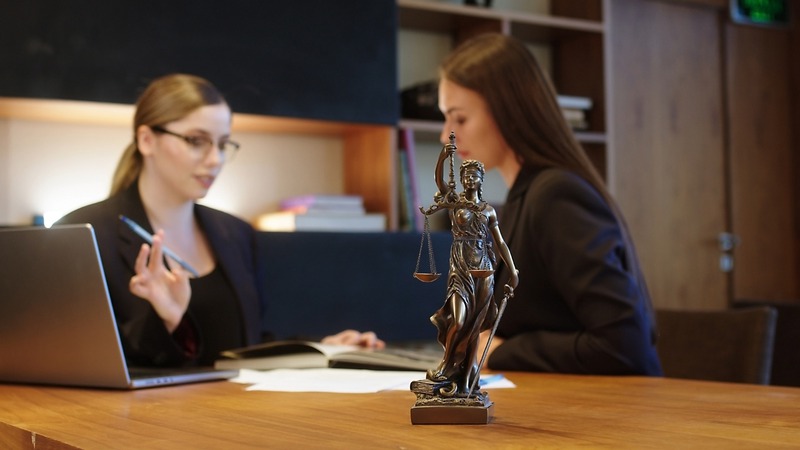How to Verify the Trustworthiness and Reliability of a Legal Professional

Choosing a legal professional is more than just picking a name out of a hat. It involves research, judgment, and a bit of intuition. Whether you’re dealing with a personal injury case or seeking general legal advice, knowing how to assess a legal expert’s reliability and trustworthiness is key. Let’s walk through some practical steps to help you make an informed decision.
1. Check Their Credentials
The first step in assessing a legal professional is to check their credentials. This means verifying their legal qualifications and ensuring they’re licensed to practice in your state. You can easily find this information on state bar association websites. Make sure their license is active and check for any disciplinary actions in their history. This offers a clear view of their professional standing.
2. Read Online Reviews
Online reviews can provide insights into a legal professional’s reputation. While a handful of negative reviews shouldn’t be a dealbreaker, a trend of complaints could be a red flag. Look for reviews on reputable sites where clients share their experiences. This will help give you a realistic expectation of what working with them might be like.
3. Ask for Recommendations
Never underestimate the power of word-of-mouth. Asking friends, family, or colleagues for recommendations can lead you to reliable legal professionals. These individuals may have firsthand experience and can provide honest feedback. A trusted personal recommendation often carries more weight than any online review.
4. Evaluate Experience
Consider the lawyer’s experience, especially in the field relevant to your case. For instance, if you need help with personal injury representation, you’d want someone experienced in that area. Check how long they’ve been practicing and any particular cases they’ve handled successfully. Experience can often translate into nuanced understanding and better strategy.
Not all lawyers are the same. Specializing in different areas of law complements their experience. If you’re looking to find legal help for Hudson personal injuries, ensure that the attorney has substantial experience in personal injury law. This focus ensures they are well-versed in nuances specific to your needs.
5. Initial Consultation
Most legal professionals offer an initial consultation. Use this meeting to gauge their communication style and how comfortable you feel with them. Ask yourself if they listen well, answer your questions clearly, and provide an understandable plan for your legal issues. This interaction can be quite telling about what a future working relationship may look like.
6. Assess Communication Skills
Effective communication is crucial in any legal profession. You’ll want someone who communicates clearly and promptly. Are they quick to return calls and emails? Do they keep you updated about developments? How they communicate can affect the outcome of your case and reduce your stress.
7. Look for Transparency in Fees
Trustworthy legal professionals are transparent about their fees. During your initial consultation, they should provide a clear explanation of their fee structure. Whether it’s an hourly rate, contingency fee, or a flat fee, understanding this aspect upfront prevents any unpleasant surprises down the road. Remember, transparency in payment terms reflects on their integrity.
Visiting their office can provide subtle hints about their professionalism. Is the office well-organized? Are the staff friendly and helpful? A visit to a practice, like a visit Hudson personal injury law office, should feel welcoming and professional. The way they operate day-to-day can reflect on how they handle your case.
8. Utilize Social Media
Many legal professionals maintain a presence on social media. Platforms like LinkedIn can offer insights into their professional background and network. Do they engage within their professional community? Their social media behavior can provide clues to their ethics and professionalism.
9. Trust Your Instincts
Sometimes, intuition plays a role in your decision. After researching, meeting, and interacting with potential lawyers, trust your gut. If something doesn’t feel right, it’s okay to walk away. Your peace of mind is paramount in any professional relationship.
10. Verify Affiliations and Awards
Legal professionals often belong to various legal organizations or have received awards from industry bodies. These affiliations can reflect their standing among peers. While not the sole criteria, these accolades can provide additional confidence in their capabilities and commitment to excellence.
11. Inquire About Track Record
Ask about their previous cases. A lawyer with a track record of successful outcomes can be reassuring. While past success doesn’t guarantee future results, it might provide an indication of their effectiveness and reliability in handling cases like yours.
12. Consider Client Relationships
How does the lawyer relate to their clients? Building a rapport is crucial. You want someone approachable, empathetic, and genuinely interested in your case. A strong attorney-client relationship could be the difference between a positive and negative legal experience.
13. Confirm Ethical Standards
Attorneys must adhere to a code of ethics. Confirm that the lawyer you’re considering has a history of upholding these ethical standards. Breaches not only affect their trustworthiness but also their ability to represent you effectively.
It’s perfectly acceptable to get a second opinion. If unsure about your initial choice, consult another lawyer for their take on your situation. Sometimes a fresh perspective can offer clarity and reinforce your choice or sway you in another direction.
14. Review Settlement Strategies
In legal cases, especially personal injury, the approach to settlement can vary. Ask the lawyer how they typically handle settlements. Are they aggressive negotiators or more inclined towards litigation? Understanding their strategy can align with your goals and comfort level.
15. Look for Conflict Resolution Skills
A reliable lawyer should possess excellent conflict-resolution skills. This not only applies in court but also in negotiations or mediations outside the courtroom. Their ability to resolve issues amicably can lead to quicker, less stressful outcomes.
16. Community Engagement
How involved is the lawyer in their local community? Participation in local events, sponsorships, and volunteering can reflect a genuine commitment to the area and its people. Such actions might not directly relate to their legal skills but showcase values and a community-oriented approach.
17. Up-to-date Legal Knowledge
The law is continually evolving, and a competent lawyer will stay informed of changes and updates in their field. Ask about any recent training or seminars they’ve attended. It underscores their commitment to offering the best representation possible by staying informed.
By following these steps, you can better assess the trustworthiness and reliability of a legal professional. Whether you need general advice or specialized services like personal injury representation in New Port Richey, FL, this thoughtful approach ensures you choose someone who meets your needs with competence and confidence.
Final Thoughts
Remember, selecting the right lawyer involves more than just checking boxes – it’s about finding someone who resonates with your values and priorities. Taking the time to choose wisely offers peace of mind during what can often be a stressful and challenging journey.



